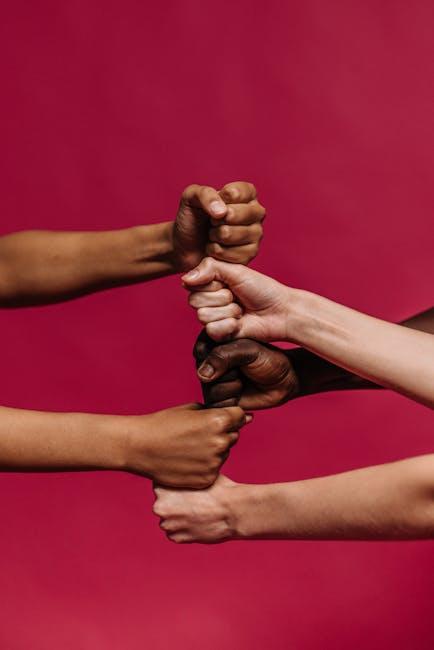
Social Determinants of Seeking Emergency and Routine Dental Care in Saudi Arabia During the COVID-19 Pandemic – BMC Oral Health
The COVID-19 pandemic drastically reshaped the landscape of healthcare worldwide, including dental services. In Saudi Arabia, the social determinants shaping individuals’ decisions to seek emergency and routine dental care during this period have shown unique patterns and challenges. Understanding these factors is critical for public health professionals, policymakers, dental practitioners, and patients to ensure accessible, safe, and effective oral health care.
Introduction
Dental care is essential not only for maintaining oral health but also for overall well-being. The pandemic added layers of complexity due to fears of virus transmission, restrictions on non-urgent medical services, and shifting economic conditions. BMC Oral Health’s comprehensive research sheds light on how social determinants influenced dental care-seeking behavior in Saudi Arabia during this critical period. This article dives deep into these determinants to inform better care strategies and patient education.
Understanding Social Determinants in Dental Care
Social determinants refer to the conditions in which people are born, grow, live, work, and age that impact health outcomes and behavior. When it comes to dental care, these determinants can significantly affect a person’s ability and choice to seek treatment during extraordinary circumstances like a pandemic.
Key Social Determinants Influencing Dental Care-Seeking Behavior
- Socioeconomic Status: Income levels often dictate accessibility to dental services, affordability of treatment, and insurance coverage.
- Education Level: Awareness of oral health importance and knowledge about COVID-19 safety measures influence care-seeking decisions.
- Geographical Location: Urban residents generally have better access to dental clinics compared to rural populations.
- Health Literacy: Understanding symptoms and when to seek emergency vs. routine care evolves through health literacy.
- Cultural Beliefs & Attitudes: Perceptions about COVID-19 risks and trust in healthcare professionals impact utilization.
- Government Policies & Health Infrastructure: Lockdowns, availability of emergency-only services, and telehealth options play a critical role.
Impact of COVID-19 on Dental Care-Seeking in Saudi Arabia
The pandemic caused a dramatic decline in routine dental visits globally, including Saudi Arabia. BMC Oral Health research highlights the following trends:
| Type of Care | Pre-Pandemic Usage (%) | During Pandemic Usage (%) | Main Barriers |
|---|---|---|---|
| Emergency Dental Care | 65% | 70% | Fear of infection, limited service availability |
| Routine Dental Care | 75% | 40% | Clinic closures, financial constraints, fear of COVID-19 |
Social and Psychological Factors Driving These Trends
Many individuals delayed routine checkups and cleanings out of fear of COVID-19 exposure. Psychological stress and anxiety were high, which in some cases pushed people to ignore mild dental issues until they escalated to emergencies. Conversely, some sought emergency care more frequently due to increased dental problems caused by lifestyle changes (e.g., higher sugar consumption, stress-related bruxism).
Benefits of Understanding These Social Determinants
By recognizing the influence of these social factors, stakeholders can:
- Design culturally sensitive health communication strategies to encourage safe dental visits.
- Implement policies to support vulnerable populations financially and logistically.
- Improve tele-dentistry uptake to reduce barriers to care.
- Train dental professionals to manage patient fears and misinformation effectively.
Practical Tips for Seeking Dental Care During a Pandemic
Whether you need emergency or routine dental care, here are ways to safely navigate your oral health needs:
- Verify Clinic Protocols: Choose dental clinics that follow strict COVID-19 infection control guidelines.
- Use Teledentistry: For minor issues or consultation before visiting in person.
- Maintain Oral Hygiene: Enhance at-home care to reduce the need for urgent visits.
- Communicate Symptoms Early: Don’t ignore dental pain or swelling — early care prevents complications.
- Schedule Appointments Wisely: Avoid peak hours or crowded clinics to minimize exposure.
Case Study: Riyadh Residents’ Experience with Dental Care Access
A study conducted in Riyadh during the peak of the COVID-19 crisis revealed interesting insights about social determinants in action:
| Factor | Impact on Care-Seeking | Example |
|---|---|---|
| Income Level | Lower-income groups delayed care more often | Postponed dental checkups due to job loss/fear of expenses |
| Education | Highly educated individuals used tele-dentistry services | Relied on virtual consultations before visiting clinics |
| Urban vs Rural | Rural residents faced travel restrictions, reducing care access | Travel bans limited visits to urban dental clinics |
Firsthand Experiences of Saudi Patients
Many patients shared how COVID-19 shaped their dental care decisions:
“I was scared to visit the clinic, but my toothache became unbearable. The dentist explained all safety measures, which helped me feel comfortable coming in.” – Amina, Jeddah
“Using phone consultations saved me time and kept me safe. I hope this option remains even after the pandemic.” – Faisal, Riyadh
Conclusion
The COVID-19 pandemic exposed and amplified the social determinants affecting emergency and routine dental care-seeking behaviors in Saudi Arabia. Recognizing the impact of factors such as socioeconomic status, education, geographic location, and cultural attitudes allows health authorities and dental professionals to craft targeted interventions. These measures will pave the way for more equitable, safe, and accessible dental health services during ongoing global health challenges and beyond.
As Saudi Arabia continues to evolve its healthcare system post-pandemic, integrating the lessons learned from BMC Oral Health studies and patient experiences will be crucial to promoting oral health recovery and resilience across all social segments.


